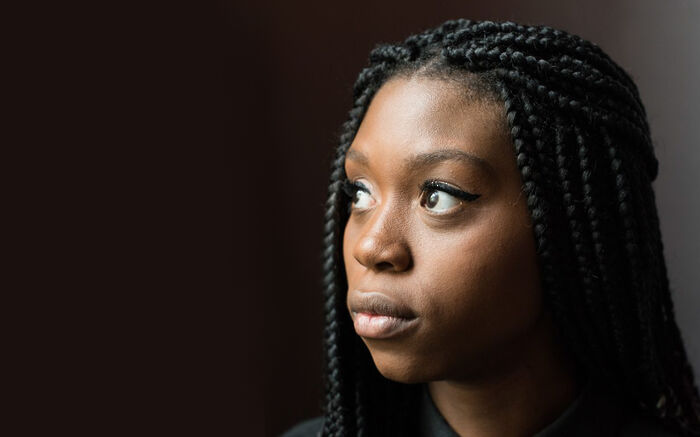Decolonising the English syllabus will only make it richer
Stephanie McMorran draws on ‘Britishness’ in literature, saying that adding non-white authors to the syllabus will make our understanding so much broader

I am proud, as a black woman and as one of the few people of colour in the English faculty, to support the valiant efforts made by Lola Olufemi and the English Faculty to begin introducing black and minority ethnic authors into the curriculum. We should all condemn the dishonest reporting in The Daily Telegraph that led to the abuse of her on Twitter by internet trolls. The decolonise movement is vitally important, formally expanding upon work that many professors around Cambridge have already been doing.
In my first year, I had the great pleasure of being taught by Dr Malachi McIntosh, one of the few black fellows in Cambridge and, I believe, the only black fellow in the English faculty. He placed an emphasis – especially in the more contemporary period – on looking at different voices within Britain, and we had our eyes widened learning about authors such as Trinidadian-born Sam Selvon, who used creolised English, and Linton Kwesi Johnson, the second living poet, and only black poet, to be published in the vaunted Penguin Modern Classics series. There is still so much more work to do, but decolonising will help students better understand different cultures and let us better learn our history. For example I have discovered that the ‘spectre’ of non-whiteness even overshadows Jane Austen, whose uncle had a share in the slave trade.
“Many of the problems that we face today (i.e. with the idea of ‘Britishness’ as white) stem back to the early days of the Latin West”
The movement is getting the reaction that it does – such as an indefensible and inaccurate attack on a young black woman who dared to speak up against an oppressive status quo – because the introduction of black and non-white authors calls into question a notion of Britishness that has been cultivated for centuries. Writers such as Shakespeare and Tennyson are held up in the literary canon as the very essence of Britishness. The creation of a (problematic) British identity is something that Shakespeare was very much interested in, and contributed to: lots of work has been done by critics to analyse his portrayal of the expansion of the British empire and the slavery within it.
Moving on from our obsession with the narrow Britishness that these writers represent will be massively enriching. It will allow us to study authors such as eighteenth-century freed slave and abolitionist Olaudah Equiano and the black presence in, and contribution to, the Renaissance. Learning about non-whiteness in the Medieval period could contribute so much to our literary and historical understanding. For instance, we should think critically about the crusades and their contribution to a distinct English or European identity. They pitted white crusaders against non-white Muslims, and the European narrative has historically framed this as good vs. evil (this can be seen in George Bush’s evocation of crusading language when launching his ‘war on terror’).
Many of the problems that we face today – i.e. with the idea of ‘Britishness’ as white – stem from deep in our past. These examples not only to try and explain the reaction to the decolonise movement, but also to show that it is difficult not to incorporate a discussion of colonialism and racial violence in any period of British literature. The drive to decolonise, which has picked up so attention recently, focuses on these important elements of our past and brings into clearer perspective why things currently are how they are.
The Faculty should actively encourage these debates. It would be neat, for instance, to read Medieval Islamic philosophers in conjunction with early Medieval literature. The whole twelfth-century Renaissance could not have taken place if the Middle Eastern philosophers had not saved and copied down texts of ancient philosophers such as Aristotle. And what about the influence of slave narratives in the writing of contemporary authors?
The decolonisation of the English Tripos opens up new possibilities both for new research and a renewed interest in parts of the subject considered ‘too white’, inaccessible or just plain irrelevant to minority students by looking at things from a new angle. In my mind, the movement could perhaps more fruitfully be thought of as further renewing the relevance of ‘traditional’ texts by making them relevant to the multicultural world in which we find ourselves, adding more depth to a definition of what it means to be British. Though there will perhaps be more resistance, down the road Lola will be remembered for encouraging the future thinkers and academics of the twenty-first century to consider and cherish the voices of others as a crucial part of what we call ‘Britishness’
 Features / Cloudbusting: happy 10th birthday to the building you’ve never heard of30 March 2025
Features / Cloudbusting: happy 10th birthday to the building you’ve never heard of30 March 2025 News / Uni offers AI course for Lloyds employees30 March 2025
News / Uni offers AI course for Lloyds employees30 March 2025 News / Caius clock hand returned nearly 100 years after student prank31 March 2025
News / Caius clock hand returned nearly 100 years after student prank31 March 2025 News / Ski mask-wearing teens break into Caius accommodation27 March 2025
News / Ski mask-wearing teens break into Caius accommodation27 March 2025 News / Write for Varsity this Easter31 March 2025
News / Write for Varsity this Easter31 March 2025






